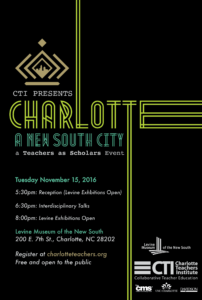 Teachers as Scholars
Teachers as Scholars
Charlotte: a New South City
Tuesday, 15 November 2016
5:30-8:30 p.m.
Levine Museum of the New South
200 E. 7th St., Charlotte, NC 28202
REGISTER HERE!
What can a New South history scholar and three local public school educators who developed new curricula about mill children, music, racism and the power of individual voices, teach us the Queen City’s future? Come find out at Charlotte: A New South City, a Teachers As Scholars event, on Tuesday, Nov. 15, 5:30-9:00 p.m., at the Levine Museum of the New South, presented by Charlotte Teachers Institute.
Part of CTI’s Teachers As Scholars series, this event features work that grew out of CTI seminars for Charlotte-Mecklenburg Schools teachers, including two seminars led by Dr. Shepherd (Shep) McKinley, senior lecturer in history at UNC Charlotte.
“I’ve always felt that much of the rich history of Charlotte and the South in the several decades after the Civil War was relatively neglected,” McKinley said. “Now, after the Keith Scott shooting in September, I think it’s even more important for teachers, students and all of us to understand the origins and rise of industrialization, Jim Crow, the Civil Rights movement and the post-1980 boom years. As always in history, it’s a complicated story, and the more we all know about it, the better choices we’ll make in the future.”
In his two CTI seminars (Charlotte as a New South City in 2013 and The Rise of the New South in 2010), McKinley collaborated with about 25 CMS teachers. These CTI Fellows created original New South curricula to teach to their own students, in first grade through advanced high school classes, and a wide range of subject areas — history, economics, music, literature, apparel and design and more. McKinley’s 2013 seminar included a dozen meetings at the Levine Museum of the New South where Fellows studied the museum’s exhibitions and collections up close to inform and enliven the new curricula they developed for their students. They also toured Charlotte’s NoDa community and Loray Mills in Gastonia. Fellows used these resources and more in creating new curricula to teach students about their own community and its complex history.
The Nov. 15 Teachers As Scholars program begins with a reception and viewing of the Levine Museum of the New South exhibitions from 5:30 to 6:30 p.m. Featured presentations and discussion follow with McKinley, the three featured CTI Fellows, and some of their students, until 8:00 p.m. Presentations include:
- Charlotte as a New South City – Shepherd McKinley, senior lecturer in history, UNC Charlotte
- Using Music as a Common Language to Fight Racism – Holly Lambert, music and special education teacher, and her 12th grade student William Young, Lincoln Heights Academy
- Inspirational Lessons through Life Struggles: The Mill Children – Elizabeth Kennedy, language arts teacher, Randolph Middle School
- My Story: Students’ Lives through Students’ Eyes – Eboné Lockett, English teacher, Cato Middle College High School, and students from Cato’s Our Voices Spoken Word Guild and the West Mecklenburg High School Drama Guild.
Guests can explore the Levine Museum exhibitions (The Life and Times of Robert Smalls, NUEVOlution! Latinos and the New South and Cottonfields to Skyscrapers) again after the presentations until 9:00 p.m. This event is free and open to the public, but registration is requested. REGISTER HERE.
Presentation Descriptions
Charlotte as a New South City –Shepherd McKinley, Senior Lecturer, History, UNC Charlotte
Shep McKinley has led two CTI seminars for CMS teachers exploring the New South and Charlotte, 1865-present. In 2010, his CTI Fellows discussed eras and issues from Reconstruction to the newest New South and toured Noda with Tom Hanchett. In 2013, the focus was closer to home. They met with Tom at the Levine Museum of the New South, toured the “Cotton Fields to Skyscrapers” exhibit, and toured the Loray Mill in Gastonia.
Using Music as a Common Language to Fight Racism — Holly Lambert, Music & Special Education Teacher, and William Young, Student, Class of 2017, Lincoln Heights Academy
Holly Lambert was a CTI Fellow in Shep’s The Rise of the New South seminar in 2010. Based on her involvement in that seminar she created a curriculum unit for secondary music classes on how music is used to peacefully protest. Holly will discuss components from her unit, as well as barriers she faced in teaching it to mostly minority special education students. She will also showcase a song created from this unit by one of her students, William Young, who is now in 12th grade.
Inspirational Lessons through Life Struggles: The Mill Children — Elizabeth Kennedy, Language Arts, Randolph Middle School
Beth Kennedy was a Fellow in Shep’s 2013 CTI seminar Charlotte as a New South City: Using the Collections of the Levine Museum of the New South which began with the question, “What makes the South distinctive?” After hearing her non-southern colleagues’ perspectives, Beth became inspired to bring the culture, hardships, uniqueness and history of mill workers and their villages to her students, and embedded many primary and secondary sources within her novel study/unit. She notes her students strongly benefit from this unit because many of them see mills from the past in their own backyards.
“My Story”– Students’ Lives through Students’ Eyes — Eboné Lockett, English, Cato Middle College High School
Eboné Lockett was a Fellow in CTI’s 2014 Visual Storytelling seminar. She chose to develop new curriculum centered on “The Children of Children Keep Coming,” written by Russell Goings and posthumously illustrated by Romare Bearden. This poetic epic captures and celebrates ancestral Giants, including the Griot who told their tales. “My Story” was the vehicle Eboné used to inspire her students to become Griots and give breath, voice and ‘worth’ to their own life stories and experiences. Some of Eboné’s students will share their stories with us tonight: Jalah Adgers and Ethiene Matondo from the West Mecklenburg High School Drama Guild, and Isabella Moose, Dayani Williams, Yulisa Wilson-Randich and Imani Clark from the Cato Middle College High School “Our Voices” Spoken Word Guild.
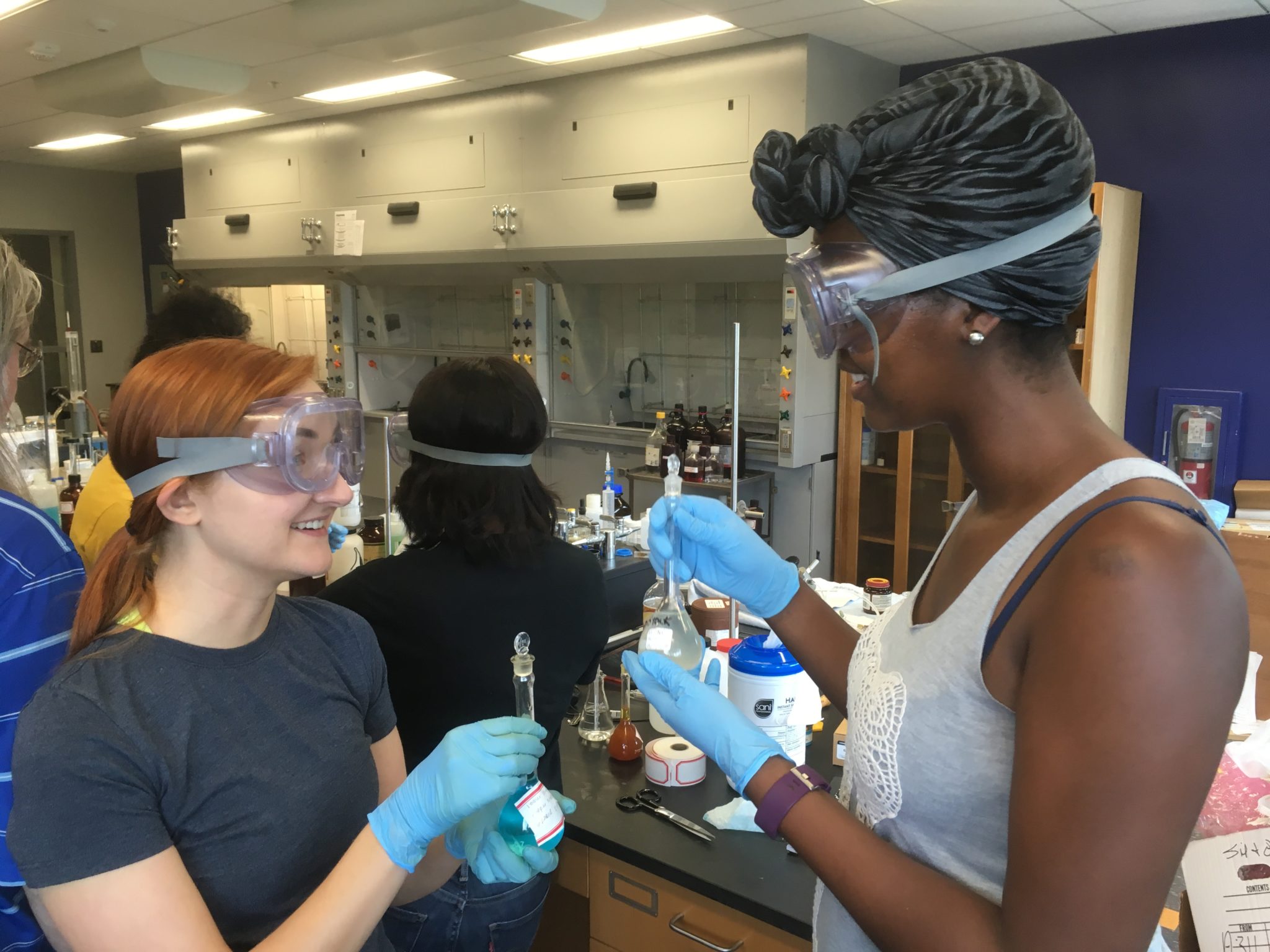
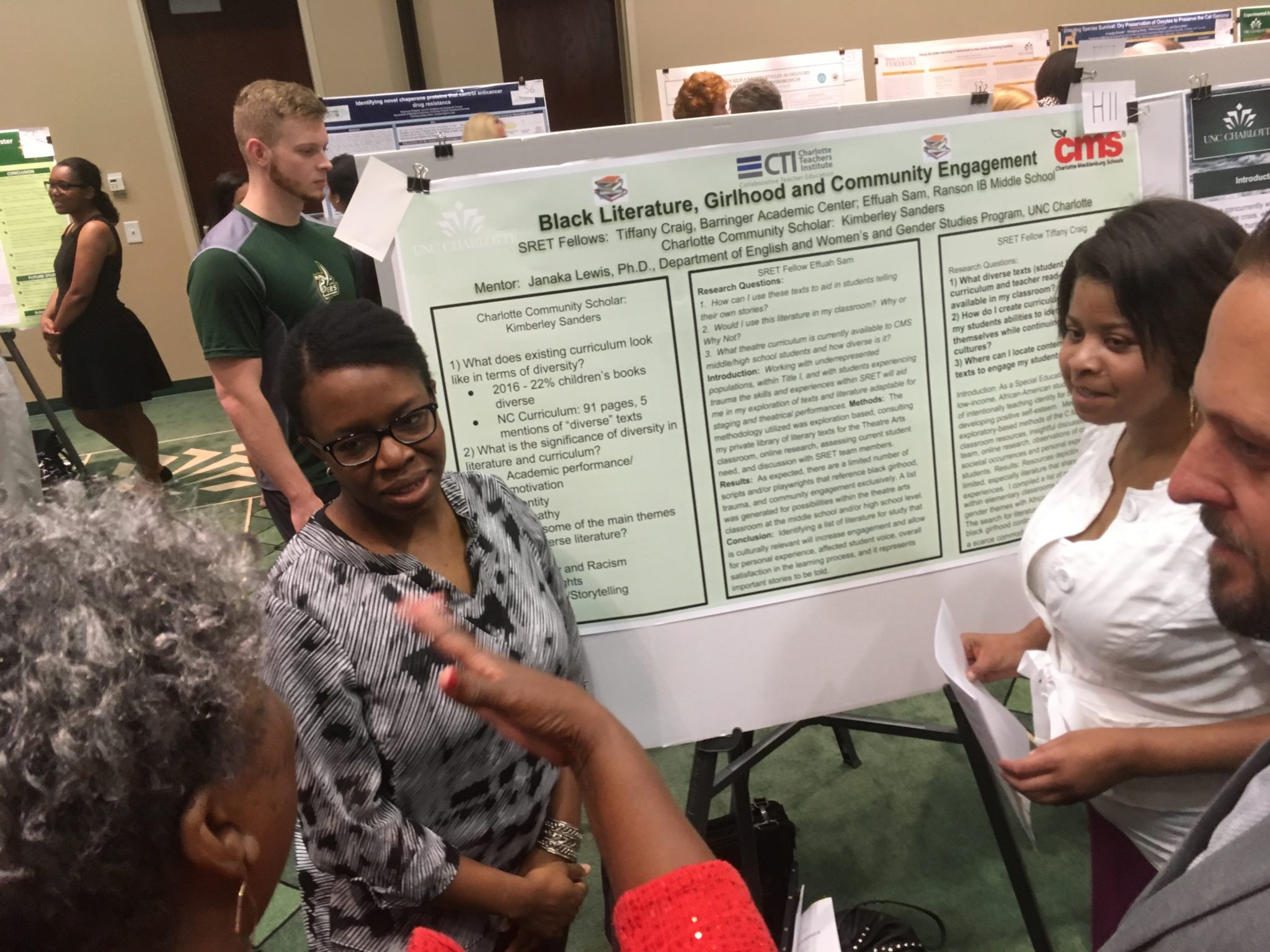
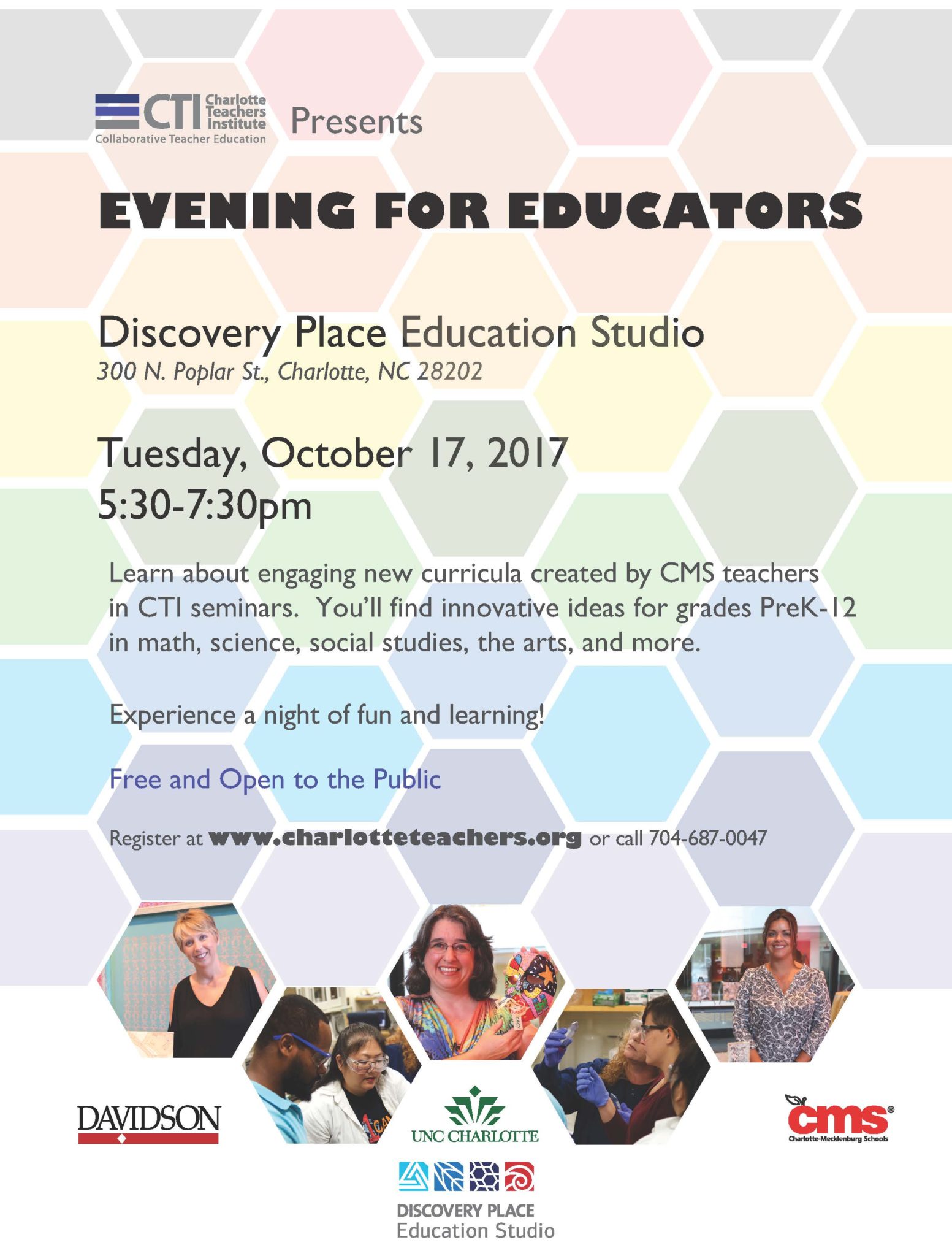

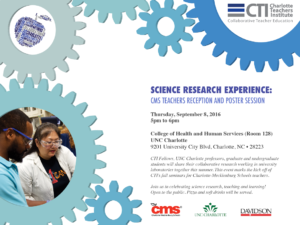






























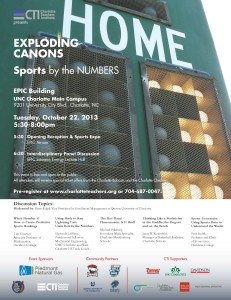
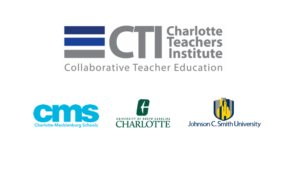
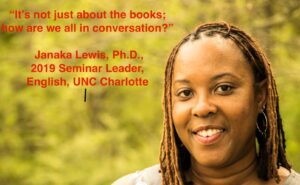

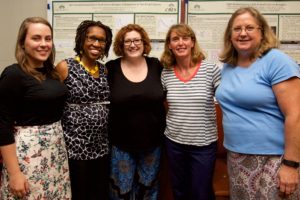
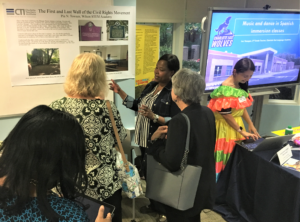





 Home
Home